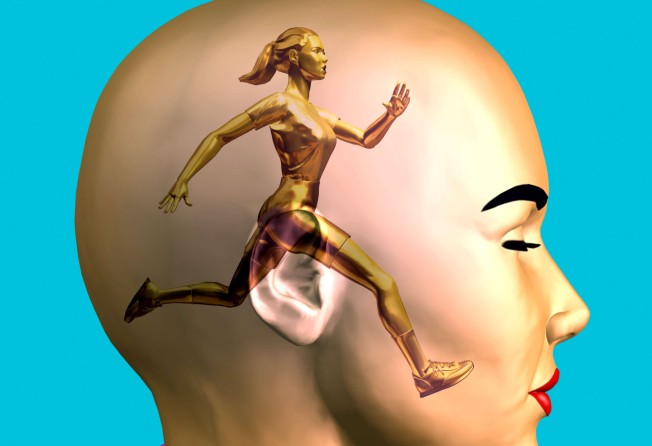
If you want to remember something new, hit the gym four hours later
Study suggests appropriately timed physical exercise can improve long-term memory; also in health news, eating more whole grains reduces risks of early death, and diabetes changes teens’ brains

Hitting the gym after learning something new can improve your ability to retain the new information – if the exercise is done four hours later, according to a new study in the journal Current Biology.
Researchers in the Netherlands’ Radboud University Medical Centre recruited 72 study participants, who learned 90 picture-location associations over a period of approximately 40 minutes before being randomly assigned to one of three groups: one group performed exercise immediately, the second performed exercise four hours later, and the third did not perform any exercise. The exercise consisted of 35 minutes of interval training on an exercise bike at an intensity of up to 80 per cent of participants’ maximum heart rates.
Two days later, participants returned for a test to show how much they remembered while their brains were imaged via MRI. Those who exercised four hours after their learning session retained the information better two days later than those who exercised either immediately or not at all. The brain images also showed that exercise after a time delay was associated with more precise representations in the hippocampus, an area important to learning and memory, when an individual answered a question correctly.
“Our results suggest that appropriately timed physical exercise can improve long-term memory and highlight the potential of exercise as an intervention in educational and clinical settings,” the researchers conclude.

Eating more whole grains linked with lower mortality rates
Eating more whole grains may reduce the risk of premature death, according to a new meta-analysis by researchers from Harvard T.H. Chan School of Public Health.
The study found that people who ate the most whole grains, compared with those who ate little or no whole grains, had a lower risk of dying during the study period. A total of over 786,000 people were involved in the analysed studies, which were conducted in the US, Britain and Scandinavian countries between 1970 and 2010.
People who ate 70 grams per day of whole grains (about four servings), compared with those who ate little or no whole grains, had a 22 per cent lower risk of total mortality, a 23 per cent lower risk of cardiovascular disease mortality, and a 20 per cent lower risk of cancer mortality. (Mortality rate is a measure of the number of deaths in a particular population for a specific period of time.)
The researchers note that multiple bioactive compounds in whole grains could contribute to their health benefits, and that high fibre content may lower cholesterol production and glucose response, and increase satiety.
The researchers recommend that people choose foods that are high in whole grain ingredients, such as bran, oatmeal, and quinoa, that have at least 16 grams per serving, while reducing consumption of unhealthy refined carbohydrates.

Scientists detect changes in brains of teenagers with type 2 diabetes
Teenagers with type 2 diabetes have significant changes in total brain grey matter volume and in regions of grey matter involved in seeing and hearing, memory, emotions, speech, decision making and self-control, according to a new study from the Cincinnati Children’s Hospital Medical Centre.
The researchers found a relationship between less grey matter volume in the brain and the ability to pronounce and sound out unfamiliar words. Twenty teens with type 2 diabetes were compared to 20 teens without type 2 who were similar in age, race and sex. All participants in the study had high-resolution MRIs. Neither group had prior neurological or psychological disease or prior abnormal MRIs.
“Our results do not show cause and effect,” says the study’s lead author Dr Jacob Redel, who presented the findings at the American Diabetes Association’s Scientific Sessions in New Orleans. “We don’t know if the changes we found are the direct result of diabetes, but studies in adults with type 2 diabetes with longer duration of disease also show brain volume differences, brain vascular changes and cognitive decline. However, our findings suggest that preventing type 2 diabetes in adolescents is important to prevent possible complications in the future.”